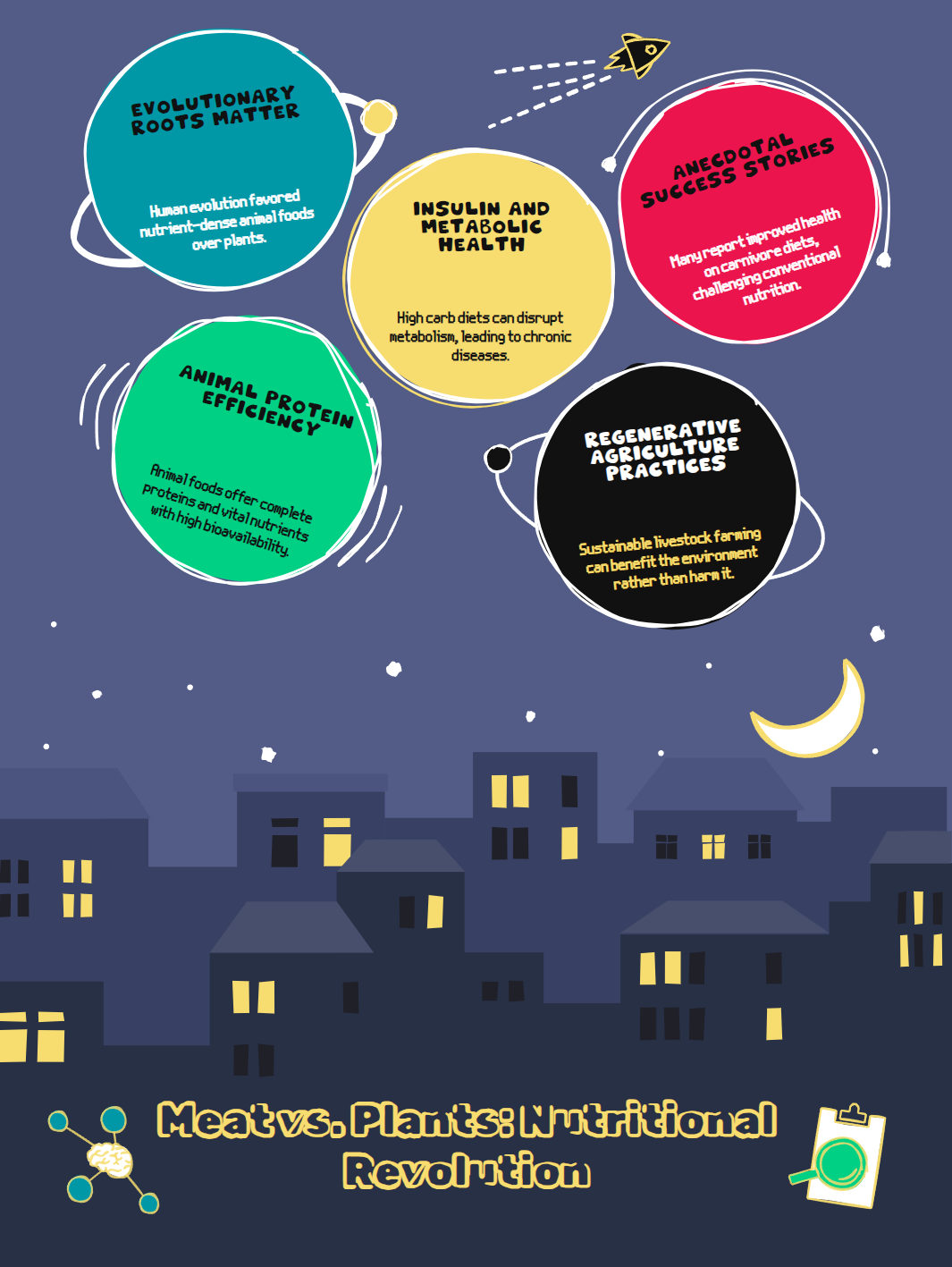
Why Everything You Know About Nutrition Might Be Wrong
Why Everything You Know About Nutrition Might Be Wrong
Meat heals—plants harm.
Four simple words that challenge decades of nutritional dogma. For generations, we've been told that fruits and vegetables form the foundation of a healthy diet, while meat should be limited or avoided. But what if this conventional wisdom has led us down a path of declining health?
Professor Bart Kay, a former senior lecturer in clinical physiology and nutrition, is at the forefront of a growing movement questioning our most fundamental dietary beliefs. His advocacy for the carnivore diet isn't just controversial—it represents a complete paradigm shift in how we understand human nutrition.
The Evolutionary Mismatch
Our modern nutritional guidelines emerged relatively recently in human history. Our ancestors thrived as apex predators for roughly two million years, prioritizing nutrient-dense animal foods. Only in the last few thousand years—a mere blink in evolutionary time—have we shifted toward plant-based agriculture.
Kay argues this shift created an evolutionary mismatch. Our bodies evolved to process animal proteins and fats with remarkable efficiency. Plants, however, contain various defense chemicals—oxalates, lectins, phytates—specifically designed to discourage consumption.
"The evidence is hiding in plain sight," Kay often points out. "Look at the rising rates of autoimmune conditions, digestive disorders, and metabolic dysfunction despite decades of following conventional dietary advice."
Beyond Macronutrients
The carnivore approach challenges us to think beyond simple macronutrient ratios. It's not just about protein versus carbs. It's about bioavailability—how efficiently our bodies can extract and utilize nutrients from different food sources.
Animal products contain complete proteins with all essential amino acids in ideal ratios. They provide highly bioavailable, crucial nutrients like vitamin B12, zinc, iron, and DHA that plant foods either lack entirely or contain in less usable forms.
When Kay discusses nutrient density, he frequently references comparative analyses showing that organ meats like liver contain exponentially more vitamins and minerals than celebrated "superfoods" like kale or blueberries. And without the accompanying anti-nutrients that can block absorption.
The Insulin Hypothesis
Central to Kay's challenge of conventional nutrition is the insulin hypothesis. Carbohydrate-heavy diets trigger insulin spikes, leading to energy crashes, inflammation, and insulin resistance. This metabolic disruption underlies many modern chronic diseases.
By contrast, a meat-based diet provides steady energy without the rollercoaster of blood sugar fluctuations. Through ketosis, the body shifts from being primarily glucose-fueled to efficiently burning fat, both dietary fat and stored body fat.
Kay argues that this metabolic flexibility represents our natural state. It's not an extreme approach but rather a return to our biological baseline, allowing our bodies to function as they evolved to do.
The Environmental Paradox
Critics often cite environmental concerns as a reason to avoid meat-heavy diets. Yet Kay points to regenerative agriculture practices that sequester carbon, rebuild topsoil, and restore ecosystems damaged by monocrop farming.
The reality is more nuanced than simplified "meat bad, plants good" messaging. Properly managed livestock can be part of the environmental solution rather than the problem. This challenges us to think holistically about food systems rather than isolating single variables.
From Theory to Practice
The most compelling evidence for Kay's position comes from the thousands who have adopted carnivorous eating patterns and experienced remarkable health transformations. People report resolution of autoimmune conditions, mental health improvements, weight normalization, and enhanced physical performance.
While formal research on carnivore diets remains limited, these consistent anecdotal patterns cannot be dismissed. They represent a powerful challenge to nutritional orthodoxy and demand serious scientific investigation.
Kay advocates for n=1 experimentation. "Your body is the ultimate laboratory," he often says. "Theories and population studies have value, but nothing trumps your direct experience."
Beyond Diet
Kay's approach extends beyond food choices to encompass lifestyle optimization. He emphasizes the importance of sunlight exposure, quality sleep, stress management, and natural movement patterns. The carnivore diet is the foundation upon which these other health practices build.
This holistic perspective recognizes that humans evolved within specific environmental contexts, and our modern detachment from these natural patterns contributes to declining health. Reconnecting with our evolutionary heritage through diet represents just one aspect of a broader return to biological alignment.
The Path Forward
Whether or not you're ready to embrace an entirely carnivorous diet, Kay's work invites critical examination of nutritional assumptions we've long taken for granted. Perhaps the most valuable contribution is the permission to question established wisdom and trust our bodies.
The nutrition field has suffered from dogmatic thinking and resistance to paradigm shifts. Kay's provocative stance serves as a necessary counterbalance, opening space for genuine scientific inquiry unfettered by ideological constraints.
This willingness to challenge convention may prove our most valuable asset as we navigate increasingly complex health challenges. The most dangerous phrase in science is "we've always done it this way." Kay reminds us that true progress often begins with questioning what everyone knows to be true.
Meat heals. Plants harm. These are four words that might revolutionize how we think about human nutrition for generations to come.
